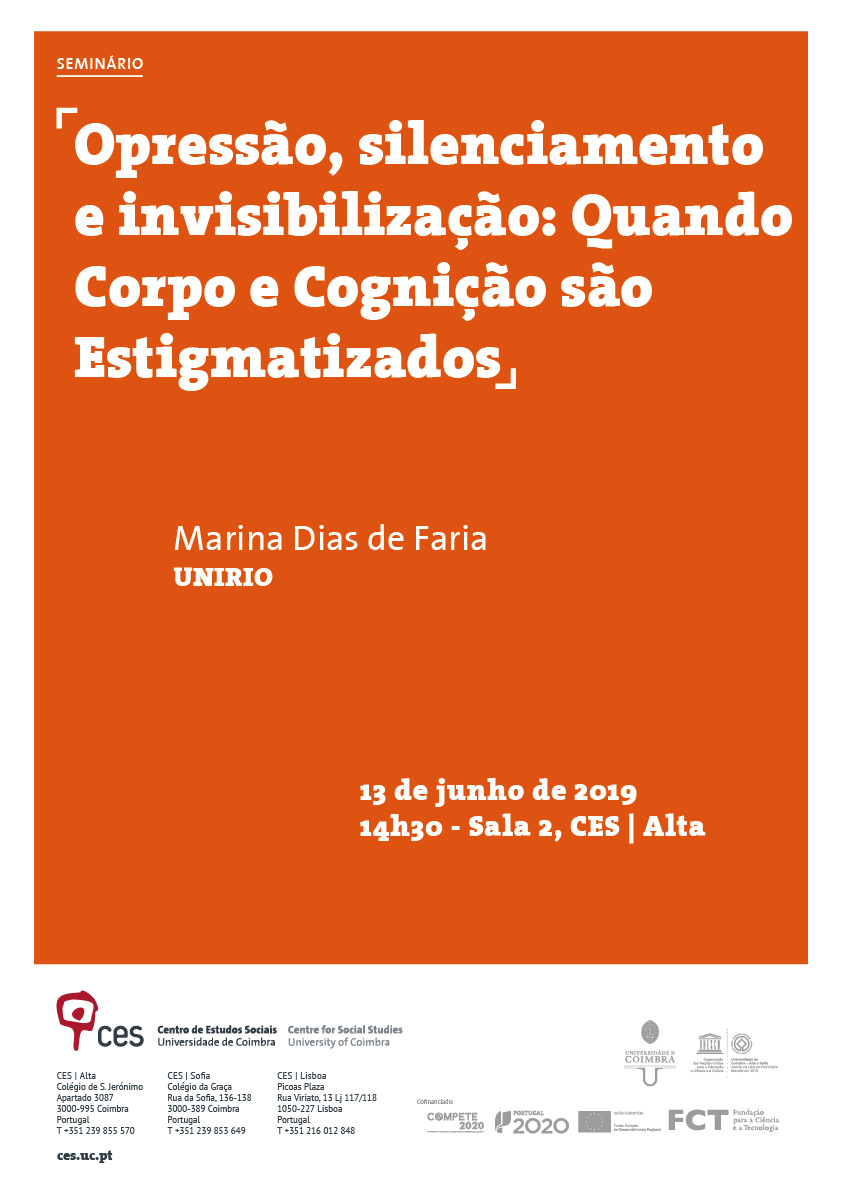Seminar
Oppression, silencing and invisibility: When Body and Cognition are Stigmatized
Marina Dias de Faria (UNIRIO)
June 13, 2019, 14h30
Room 2, CES | Alta
Overview
The social exclusion of People with Disabilities (DWC) presents complex sociocultural and economic facets, many of which are academically still little explored. Even in spaces where the discussion about invisible bodies has repercussions, there remains the dangerous use of the physical, cognitive or sensorial conditions of individuals as a collective excuse to relegate DWC to the social space of nonhumans. The experience of people with disabilities is permeated by the neglect of public power, by the attitudinal barriers imposed by the society that establishes the standard man model and by a deliberate choice of private organizations to keep these subjects on the fringe of consumption. In this scenario, the seminar focuses focuses on the invisibilization and silencing of people with Down Syndrome and their families in the Brazilian and Portuguese contexts. The intention is to stimulate the debate not only about the causes and consequences of the social stigma of these people, but also to instigate reflections such as: Which social actors benefit from maintaining the exclusion of DWC? What is the role of social scientists in breaking models that individualize the experience of disability by privileging oppression? What are the main challenges for developing studies about disability through non-extractivist epistemologies and methodologies, based on subject-subject rather than subject-object relations?
Bio note
Marina Dias de Faria holds a PhD in Administration from the Federal University of Rio de Janeiro (UFRJ) and is Adjunct Professor of Public Administration at the Federal University of Rio de Janeiro (UNIRIO). She is currently a postdoctoral fellow at the Centre for Social Studies of the University of Coimbra. Her research interests focus on the social exclusion of people with disabilities, as well as the debate on epistemologies and methodologies capable of giving voice to such individuals.


